Reading skills improvement Normal Alphabet Worksheets for Ages 4-6
7 filtered results
-
From - To
Enhance your child's reading skills with our specially designed Normal Alphabet Worksheets for ages 4-6. These fun and engaging activities help young learners recognize and write letters, developing foundational literacy skills in the process. Perfect for both classroom and home use, our worksheets offer a blend of tracing, matching, and letter identification exercises. They support early reading development by making learning the alphabet an enjoyable experience. Give your child a head start in reading, bolstering their confidence and academic success. Download our worksheets today to see immediate improvements in your child's reading skills.
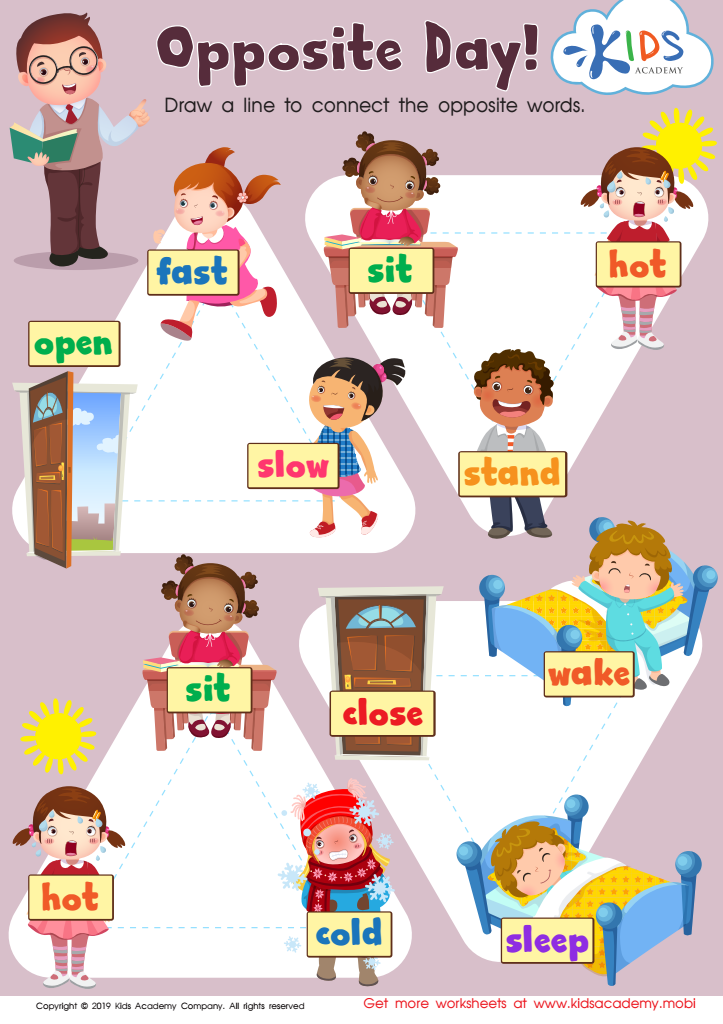

Opposite Day Worksheet
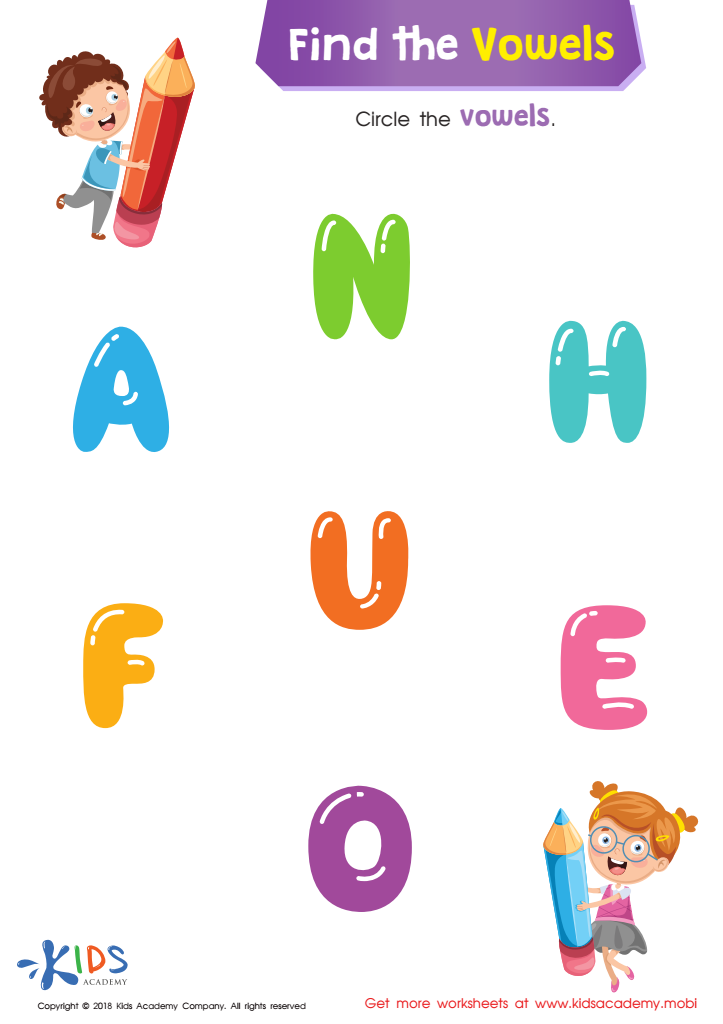

Find the Vowels Reading Worksheet
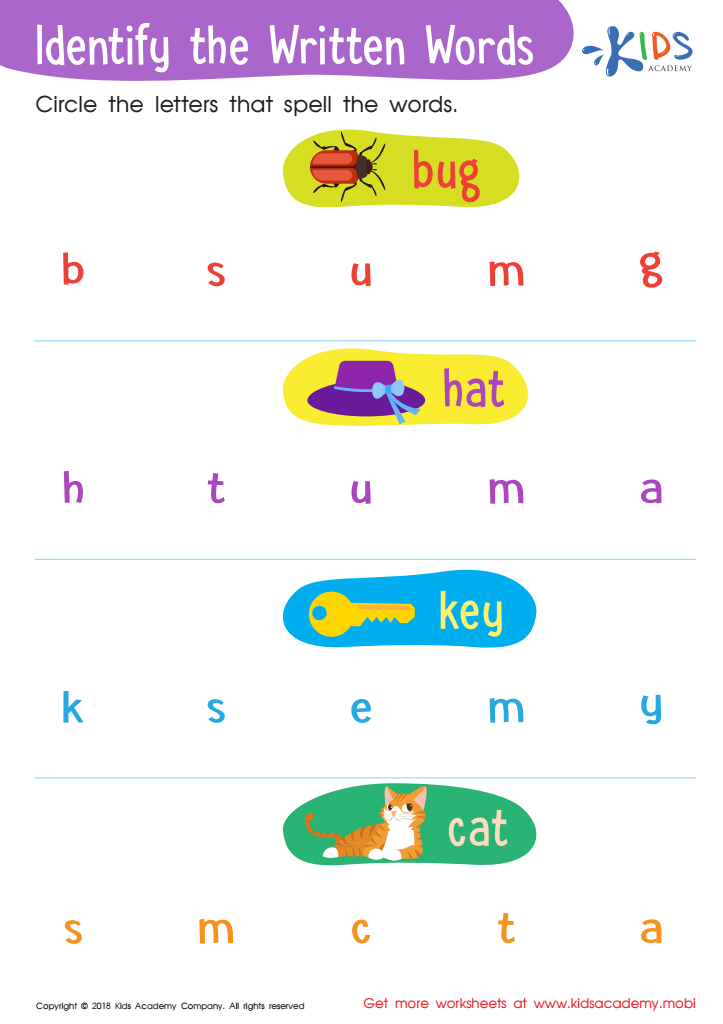

Identify the Written Words Worksheet


Words with sound p Reading Worksheet
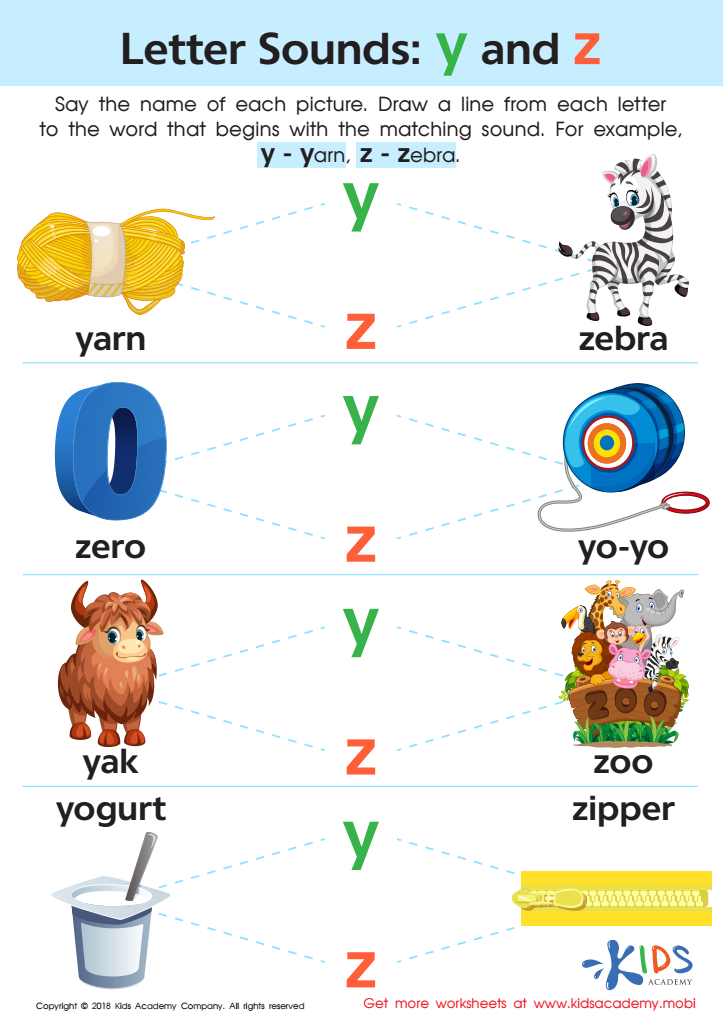

Letter Y and Z Sounds Worksheet
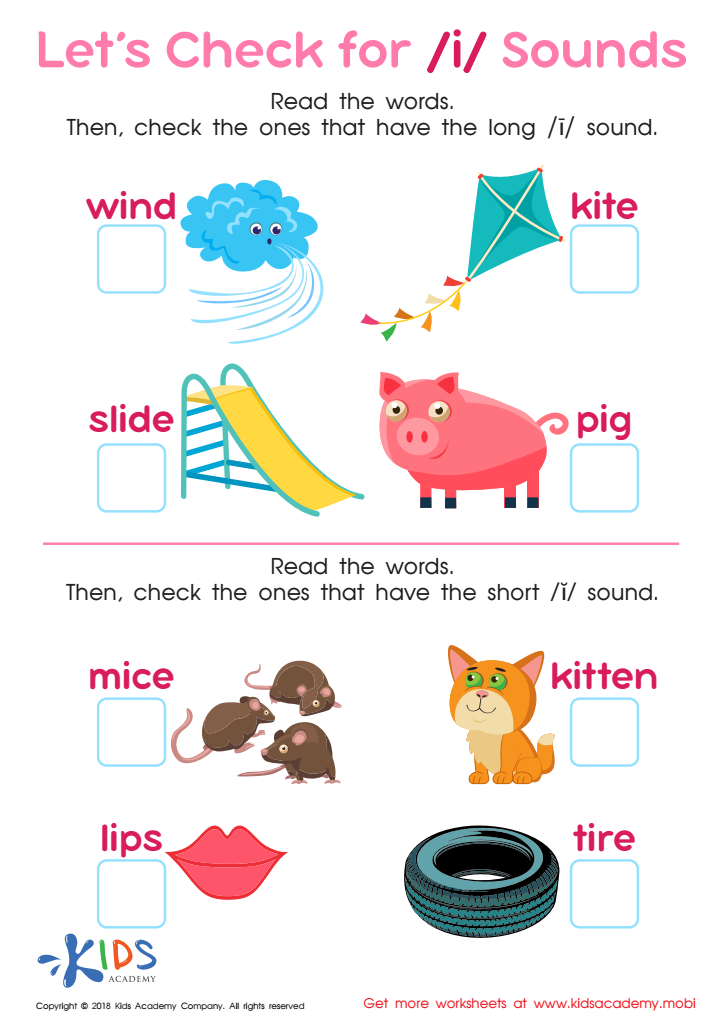

Let's Check for «i» Sounds Worksheet
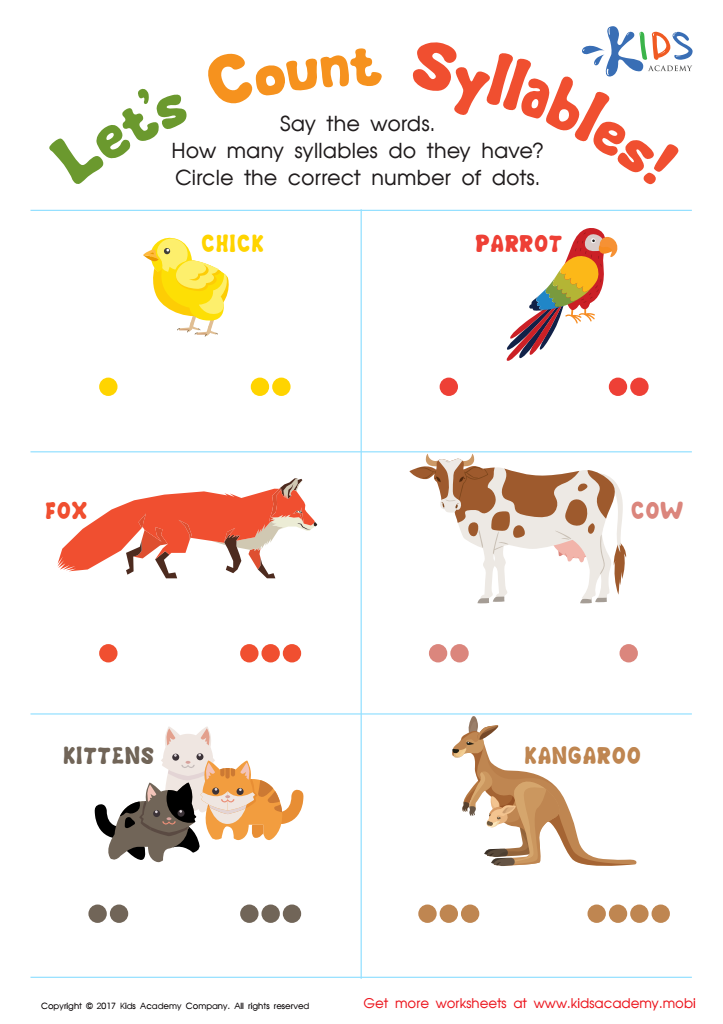

Lets Count Syllables Worksheet
Early reading skills are fundamental for children aged 4-6, as they lay the groundwork for lifelong learning and academic success. Parents and teachers need to prioritize reading skills because they foster critical cognitive development, communication abilities, and a love for learning. At this formative stage, children are highly receptive to new information, and developing their reading proficiency enhances vocabulary, comprehension, and overall language abilities. These skills are crucial not only for academic subjects like science and math but also for understanding the world around them.
Moreover, early reading instills confidence, encourages imagination, and develops concentration and discipline. By reading stories, children learn about different cultures, emotions, and experiences, making them more empathetic and socially aware. Teachers and parents play a vital role in this development by providing a stimulating and supportive environment.
Reading also serves as a predictor of future academic achievement. Children who read well are more likely to excel in school, setting a positive trajectory for their educational journey. Thus, investing time in improving early reading skills can significantly impact a child's confidence, curiosity, and ability to thrive academically and socially.
By nurturing these skills early, parents and teachers can ensure children have the necessary tools for future success and a lifelong love for reading.
 Assign to My Students
Assign to My Students


















